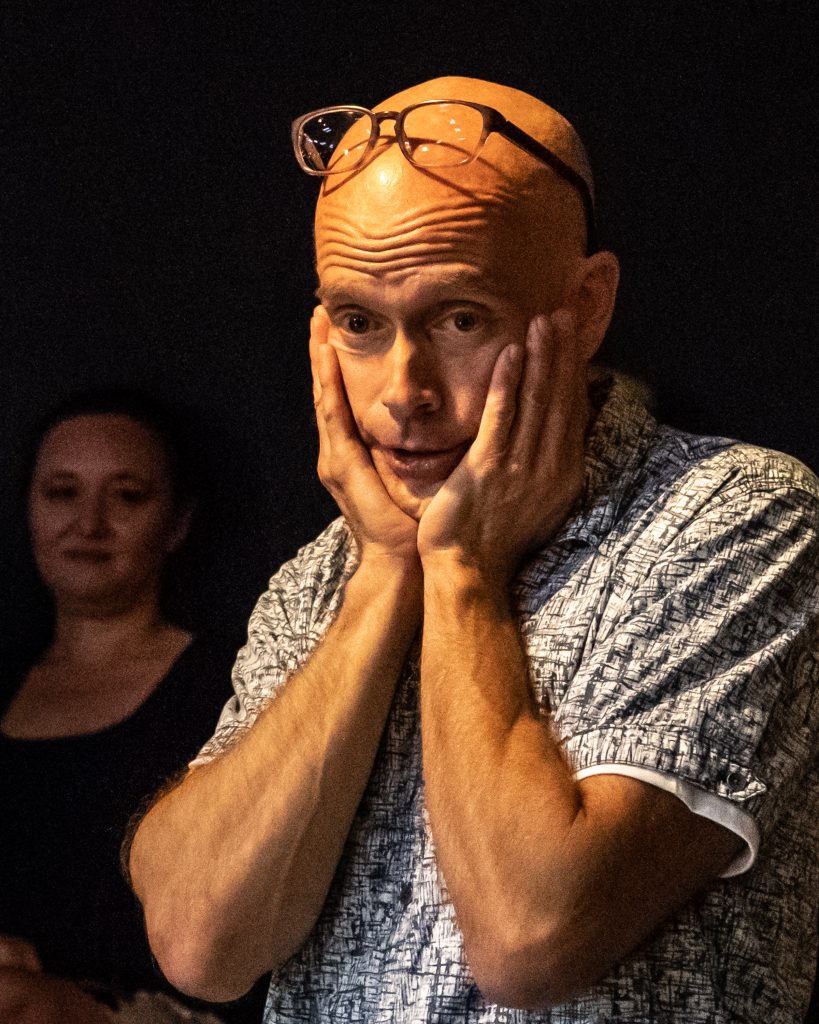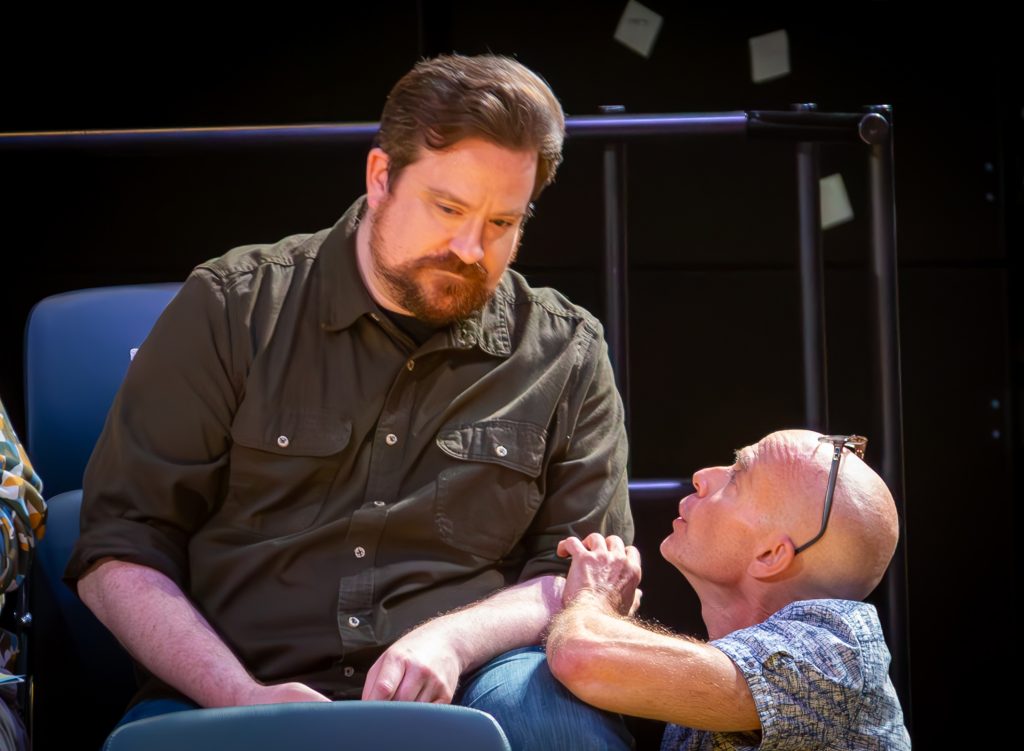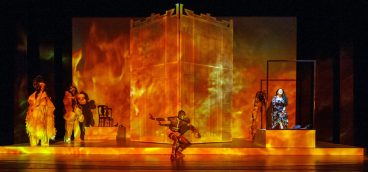The Audience as Character: Kinetic Theatre’s “Every Brilliant Thing”

There are many reasons to like Kinetic Theatre Company’s “Every Brilliant Thing,” but perhaps the best one is in the way it creates a bonding experience with the audience – rare enough these days — and furthermore, that it does so in a manner that is not political, sentimental, or didactic – the three crutches so many shows depend on in contemporary America.
Based on a British play by Duncan Macmillan which premiered in 2014, the premise of this production is simple: one character tells a story – an interactive story – in an intimate, theatre-in-the-round setting, about his history dealing with depression and the suicide of a parent. This may sound like a downer but it isn’t, for two reasons: first, it’s written in an uplifting style, without the usual melodramatic, “call-for-sympathy” implored by many such works, but second, and most important, it’s told by an actor, Marcus Weiss, who may be one of the most ebullient souls you will ever encounter on a stage.
Weiss is an experienced multi-media performer, and his training in acting, directing, public speaking, and even clown school – comprising engagements with Blue Man Group, The Second City, Cirque Du Soleil, and many other organizations — all come to bear in how he relates this story, such that he makes it everyone’s story, not just his character’s. For Weiss focuses on the universal idea of pathos with the goal of eliciting our empathy — through a greater understanding of the human condition — instead of merely our grief. In effect this is what all the great writers of tragedy have done, including the ancient Greeks, Shakespeare, and Samuel Beckett, the last of these being particularly appropriate as he often found comedy in the plights of his darkest characters.

Director Andrew Paul knows how to utilize a black box theatre for maximum effect, by dividing the tiered seating into four sections facing each other, positioned on each side of the square stage in the middle. It’s an intense setting and allows Weiss to flow between and into the various sections like those old game show hosts who would step into the seats to chat with people, thereby breaking down the performer/audience barrier. But in this case, there’s no “fourth wall”; in fact, there are no walls, which makes the poignancy and impact of Weiss’s perambulations all the more effective.
It won’t be giving anything away to say what the show’s about — as the program already does — which is simply compiling a list of all the “brilliant” things in the world and writing them down for someone who is not so sure that life is brilliant, and hence, worth living.
This is where there may be one point of cultural misunderstanding, as the British usage of the word brilliant is somewhat different than the American. Here, we would normally use the word “wonderful” for what playwright Macmillan means to indicate by this term. (Could any American imagine Jimmy Stewart starring in a Frank Capra-esque film called “It’s a Brilliant Life?”)
The best advice I can give is to arrive early, as the performance – which officially runs for 75 minutes in one act – actually starts as people are taking their seats, with the actor chatting with audience members and handing out words or sentences written on Post-it notes that will be called out by number and vocalized during the show. It’s actually very fun, and shouldn’t be considered scary as great care is taken to assure that everyone is comfortable with their small roles, much like the flight attendant asks if you’re comfortable sitting in the emergency row on an airplane.

Johnmichael Bohach’s set is so subtle you may not notice what he’s done and the effect it has on you; but gradually, as you look around, you realize that the stage (i.e. the floor beneath your feet) is actually one giant Post-it note, and the walls are painted with huge yellow blocks too, further emphasizing this effect. In addition, they’re also covered with hundreds of real such notes stuck everywhere like you’re visiting the room of the most forgetful person in the world.
I won’t say anything more about what happens, and actually I couldn’t, as there is so much improvisation that no two nights are the same. If fact, this is one of the few theatrical productions you could see multiple times and never be bored.
But I will say that the audience on the night I attended not only loved the experience, but bonded like I’ve never seen an audience do, with individuals coming up to each other after the performance and complimenting one another on their respective small moments of participation. If you’ve ever taken a drama class, this is the kind of feeling you get when it’s over, as if you’ve gotten to know yourself better by letting others see you in small moments of authentic expression that you may not have realized were residing inside yourself.

And this is the key, as empathy is a shared emotion, while sympathy is much more unilateral. There is an honesty in this form of drama, a kind of beauty mixed with strength — what the ancient writers called the sublime — which is a sharing of profound human understanding that is more powerfully shown rather than told. Or, as the first-century scholar Longinus put it in his famous treatise, On the Sublime, “Great writing does not persuade, it takes the reader out of himself.” In this case, we the audience are taken out of ourselves and, instead of remaining passive viewers, become active protagonists in a shared catharsis that is of our combined making.
If only more playwrights, and more theaters, threw away their crutches and trusted their audiences in this way, we might all enjoy the art of drama much more deeply.
“EVERY BRILLIANT THING” continues through June 11th at the Rauh Studio Theatre in the Cathedral of Learning, Oakland, $20 – $45. 888-718-4253 or www.kinetictheatre.org












